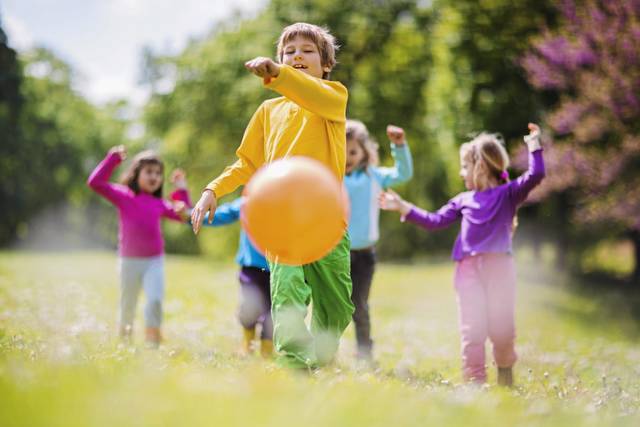https://naviga.triblive.com/opinion/tom-norquist-what-we-need-right-now-is-play/
Tom Norquist: What we need right now is play

Each day for the last 365-plus days, most of us have woken up and read the latest expert-recommended tips about what we need to do to stay healthy and achieve happiness in what, for many, has been an incredibly grim year. We’ve learned, for example, that mask wearing and social distancing are critical to slowing the spread of the covid-19 virus, and while we’ll likely need to continue to engage in those practices for a while, I have important news for you.
What we really need right now is play.
It goes without saying that the last year has, at best, brought unprecedented challenges. At worst, it’s brought tragedy, loss, fear and uncertainty. I once heard the last year described as a “prolonged traumatic experience” that has left everyone in its wake — children and adults alike — suffering from the long-term impacts of loneliness, depression and distress.
But there is renewed hope. A light at the end of the tunnel blinks bright with the availability of new vaccines. Many schools have worked hard to reopen their doors to smiling students, and businesses have agilely adapted to ever-changing regulations to keep visitors safe. Public parks and playgrounds are no longer roped off with caution tape; in fact, the Centers for Disease Control and Prevention (CDC) has highlighted the benefits that public playgrounds and parks offer and provides tips for your next visit.
In my day job, I represent play equipment manufacturers — but more importantly I represent play itself. Last year, our Voice of Play initiative, which aims to promote growth in the quality and quantity of children’s free play and the use of playgrounds, conducted a survey of 1,000 diverse U.S. parents to better understand their perceptions of play during the pandemic. The results left me feeling both hopeful and worried; while parents seem to understand that play is more important than ever before, only two in five say that their children are playing more now than before the pandemic.
That’s a problem — and not just for our children. It’s a problem for adults, too.
In addition to the obvious physical benefits, play has a natural healing power that’s unlike any medicine or drug. When children use pretend play and their imaginations, for example, they can express their feelings and learn to channel fear and displace anger into nondestructive modes. Like learning a new language, progressive play skills ensure adaptive repertoires that serve the child and broader society. Preschoolers develop empathy, emotional strength and stability, while older children develop spontaneity and humor.
Perhaps the most important aspect of play for many during the pandemic is its intrinsic ability to provide therapeutic benefits for children who are emotionally stressed. Studies have shown that when playing, children can release these emotions and “play out” the trauma, allowing them to share feelings freely. Play allows them to express their emotions and feelings in ways that they may not be able to with words. The simple act of playing provides reassurance that they’re safe and secure in what can all-too-often feel like a world of worry and uncertainty.
Adults, too, can reap these very same physical, emotional and mental benefits from taking time to play. Just like exercise, play releases endorphins that can help relieve stress, promote “feel-good” feelings and ward off anxiety and depression. It inspires creativity and imagination and fosters a playful nature that can help us adapt to better navigate even the most stressful situations. Playful adults are resilient adults.
It’s also a very real possibility that many of our relationships have been tested and strained over the last year — whether as a result of too much (or not enough) togetherness or added tension due to new everyday stressors, like working or schooling from home. Play can help alleviate these tensions, too. Taking time to bond over shared laughter and fun through play can foster a renewed sense of trust, compassion, intimacy and empathy. Even as adults, play can help teach cooperation and problem-solving skills that can be incorporated into other areas of our lives. When we are in a playful state, we rest the executive thinking portion of our brain, which can later cultivate creativity and innovation when approaching everyday challenges.
In the wake of the tragedy of the last year, it’s more important than ever before to leverage play to cope with loss, rebuild our relationships, and repair our emotional and mental health. And while we’ve likely all found it easy to get swept up in the other challenges and obligations of the last year, there’s just too much at stake.
What I urge you to do today — right now, in fact — is to drop everything and go outside and play.
Tom Norquist is past president and founder of the International Play Equipment Manufacturers Association.
Copyright ©2025— Trib Total Media, LLC (TribLIVE.com)
